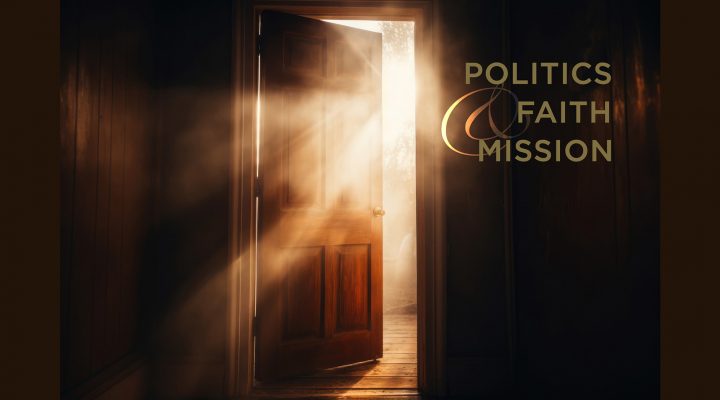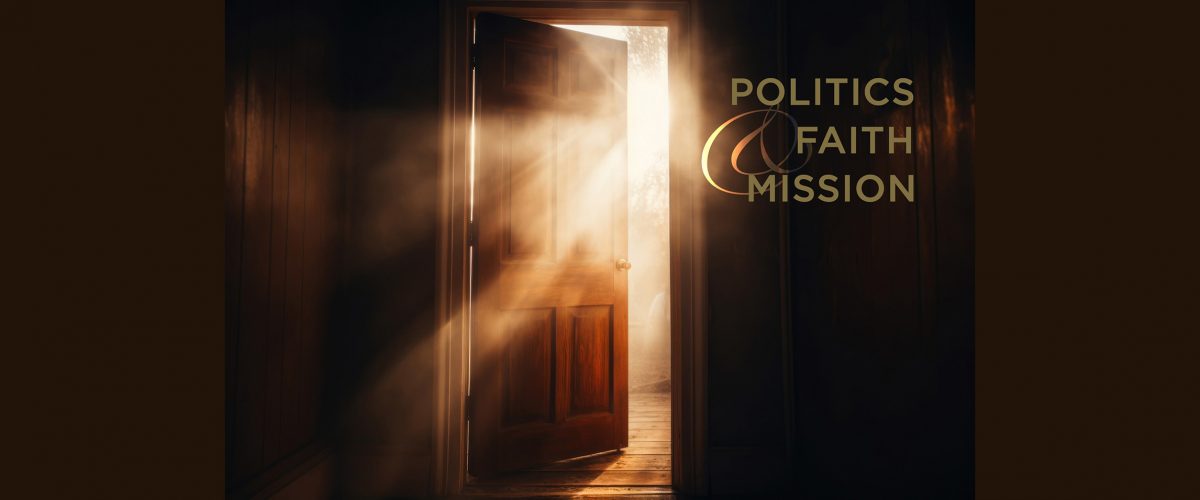Russell Moore is editor in chief of Christianity Today, the flagship publication for American evangelicals, and author of the book Losing Our Religion: An Altar Call for Evangelical America. But I’m sure many of you remember him as the former head of the Ethics and Religious Liberty Commission of the Southern Baptist Convention whose criticism of Donald Trump and of sexual abuse within the denomination led to his resignation. It was — and is still — a shocking moment in Baptist life. As Peter Wehner wrote in 2021 in The Atlantic, “One of the most important figures in the SBC has completely broken with the denomination he has been a part of for virtually his entire life.” Moore and I talked about that decision to leave the SBC, about faith and politics, and about some of our favorite common authors. I am grateful to him for this conversation.
Greg Garrett: In your book — as well as in Beth Moore’s, Adam Kinzinger’s, Tim Alberta’s — you all describe some really painful personal things, because for each of you, these past years of cultural turmoil have involved leaving or being ejected from a family and a longtime identity. Could you recount for us what it’s felt like personally to step away from the Southern Baptist Convention, and a little bit about what brought you to that point of decision.

Russell Moore
Russell Moore: There were a lot of factors involved in making the decision. One of them was the fact that I would be hearing from people who had come into the SBC recently or who had been thinking about coming into the SBC and I was afraid they were going to be badly hurt. In the last 30 years being in all the rooms, seeing and facing what I was, I couldn’t even imagine somebody who didn’t have the ability to navigate that. Also I came to the conclusion I wouldn’t be able to change anything. And so the option then would be to risk my own conscience without being able to actually change anything. You see some of that reflected in local congregations. There’s often a very small group of people who are radicalized or who are seeking to be destructive, but if the majority of the people doesn’t get what’s going on, not much can ultimately happen.
GG: I remember from the book you said if you came out of anesthesia and someone asked you what you were, you would still say, “Southern Baptist.” “Just As I Am” and dinner on the grounds still flow through my veins 30 years after I left. What does it feel like to you on a daily basis? Is it painful or are you sure you made the right decision?
“In one sense the Southern Baptist Convention I love doesn’t exist anymore.”
RM: I’m sure I made the right decision, and I wasn’t, for a long time. I second guessed myself for quite a while. My wife never did. Some of my friends know my tendency is to sort of nostalgically view the past. But there came a point where every time I started to become nostalgic, something would happen that would remind me, oh, that’s why. In one sense the Southern Baptist Convention I love doesn’t exist anymore. The denominational landscape has changed so dramatically for good and for ill. I was night before last with a group of Anglicans and Presbyterians, all of us nostalgically reminiscing about Royal Ambassadors and discipleship training, that entire sort of life. I wouldn’t be able to have those conversations in an SBC context because that world is gone, the sort of world where every Southern Baptist church in any given city would be more or less in the same vibe depending on whether it was a white-collar SBC church or blue-collar SBC church. But largely those days are over not because of decisions that the SBC made, but because of the nature of denominational life. That’s just very, very different. And so I can’t imagine anyone any younger than me having the sort of anguish it took to make that decision because when I moved from city to city, I was looking for the Southern Baptist Church nearest to me. Almost no one does that now.
GG: I want to talk about some of the cultural changes that have taken place, not just in the Southern Baptist Convention, but among evangelicals in general. You tell a story about a pastor being confronted for preaching from the Sermon on the Mount. I know you’ve given it a lot of thought and written about it in the book about this movement, this substitution of politics for faith among a lot of white Christians. Where did that come from?
RM: One of the things that happened is that there was a commitment to biblical authority that sometimes was combined with biblical illiteracy. And so there often can be a commitment to “we believe the Bible as opposed to the people who don’t,” but without an affectional inhabiting of the Bible. The political questions and the cultural questions tend to light up the limbic system and the affections more than the text of scripture does in this context right now. So the political realities are first and foremost, rather than the biblical narrative being the framing authority. I spent a long time critiquing (and I still would) a kind of red-letter Christianity that privileges parts of the gospels and the teaching of Jesus over and against the Old Testament or the Pauline epistles, but it’s just as dangerous or sometimes even more so to do the reverse. And sometimes there can be people who love a doctrine of the atonement but don’t like Jesus very much.
“There was a commitment to biblical authority that sometimes was combined with biblical illiteracy.”
GG: In the book, you relate how Donald Trump’s presence and his personality were a part of what drove you away from the Southern Baptist Convention. Can you talk a little bit about your understanding of why it is that so many people continue to support the former president despite — what feels to you and to me — his moral failings, his danger to the country, the sort of idolatry that many white Christians especially express in connection with him.? How did we get to this place where so many American Christians care more about Donald Trump than about Jesus?
RM: Some evangelicals resonated with Donald Trump for precisely the same reasons other Trump supporting Americans did. They liked what they saw to be the fighting spirit. They liked the way he seemed to be to them, a wrecking ball to the elites. That’s one category. There’s another category of people who imagine a state of emergency that is so great that all the old rules are off in their minds. And then there’s another category of people who were just committed Republicans and who saw the loyalty to the Republican Party as being ancillary to their Christian faith. And it is a very difficult thing in American life right now to be in some places in agreement with one’s party and in some places not.
What I worried about in 2015 and 2016 was not that people were saying, “Well, I don’t like Trump and Trumpism, but I think there could be some good judicial appointments” or that kind of thing. It was that I didn’t think they would stay there in that place. And they didn’t. I mean, you can see that with them. On January 6 for instance, I had a lot of people calling me and saying, “Well, now that’s over.” I said, “I don’t think so,” because I heard that reaction when the Access Hollywood recording came out, and I had thought, well, there’s no one who can find any way to justify this who has any kind of moral core, much less a Christian core. And what I saw was about three days of silence until people had talking points to use, and then we moved right on and the same thing happened with January 6. It took weeks rather than days, but it was the same process.
GG: In your book, you mention Tolkien and Lewis, Willie Nelson and jazz. I don’t know if you watched the Grammys the other night but seeing Tracy Chapman playing “Fast Car” with Luke Combs, I was thinking, OK, so we’ve got this person and this person and never the twain should meet, and yet look at this beauty and grace. Art and story give us hope for something better. Who else should we be listening to or who should we be reading who could help give us that kind of sense of possibility for America and for American Christianity?
RM: The first thing I always want to do is to define what a person means by hope. Because sometimes what we mean by hope is positive public relations, which I don’t think is hope at all.
GG: Like preserving the status quo, let’s keep things the way they are. And that’s not, I think what I mean, or you mean.
“There must be an actual recognition of the crisis without a giving over to despair.”
RM: There must be an actual recognition of the crisis without a giving over to despair. That is what Jeremiah, for instance, is doing with the Babylonian exile. This isn’t something that happened to you externally. God is doing this and God has a future for you that’s not in spite of this crisis, but on the other side of it. I think that’s important. The contemporary writer who has spoken to this moment probably more clearly than anyone else would be Walker Percy. The Moviegoer especially gets at what I think is at the root of a lot of this, which is deadness and what Percy would call “everydayness” that has to find a drama with which to unite.
In his collection of essays Signposts in a Strange Land he talks about the stoic nature, the pagan nature of much of American Christianity and especially Southern Christianity. But then he talks about the way that these crises can lead someone to be open to signs, as he puts it.
The moment right now for evangelical Christians and for some other people as well is what T.S. Eliot talks about in Four Quartets: not faith, because it would be faith in the wrong things; not hope, because it would be hope for the wrong things; not love, because it would be love for the wrong things; but a stepping back and seeing one’s own dependence, which means wisdom in ignorance, we don’t know. There are a lot of evangelical Christians who will say, “OK, well then what’s the seven-step solution to get from here back to 2011?” And not only do I not think there is a seven-step program, I don’t think it would be helpful because this is one of those moments where we actually do have to step back and say, “Lord, we don’t know. We don’t know where to go, but our eyes are on you. I think that’s where God would have us to be.”
GG: The subtitle of the book references the altar call, that moment in church when the Spirit moves on your heart and sort of drives you to turn your life around. In your book you offer a bunch of different actions and Christian disciplines that might be of use in this moment. Because we were just talking about hope and what that might mean, what are some tangible things we can do in 2024? Not talking a seven-step thing, just things people of good faith, people who are really seeking to follow Jesus in this moment might do to be light and leaven?
RM: One of the things is to realize the limits of what one can do. I will often have young evangelical Christians ask, “How do I get through 2024?” And sometimes what they mean by that is, how do I get through 2024 without broken relationships, without my parents or my home church going off into radicalization, those sorts of things. And I’ll often say, “You can’t control that. What you can do is to not be that and to seek not to be that.” That has more ripple effects than I think people know.
There is a constant warning I would give, the tendency for us when we see something really awful to say, “Well then, the answer to that must be the exact opposite of it.” And so you end up with disillusionment giving way to more disillusionment rather than saying, “Wait, I think some of this is confidence in the wrong things altogether.”
We need to reprioritize, and I actually see that happening. One of the things that’s really striking to me being on college and university campuses all the time, Christian students, 15 years ago, their questions would’ve been about predestination and the problem of evil, which are important things and good to talk about. But now they’re questions about how do I pray, step by step? How does somebody do that? How do I read the Bible with an attention span the way mine has become? There are signs of a longing for discipleship and mentorship that isn’t there.
But these are also very hopeful signs of what I think is a resurgence, sincerity, where I think those kinds of questions wouldn’t have been present 10 years ago. It would’ve felt corny to articulate them and it doesn’t now. I see that as a good sign.

Greg Garrett
Greg Garrett teaches creative writing, film, literature and theology classes at Baylor University. He is the author of two dozen books of fiction, nonfiction, memoir and translation, including the critically acclaimed novels Free Bird, Cycling, Shame and The Prodigal. His latest novel is Bastille Day. He is one of America’s leading voices on religion and culture. Two of his recent nonfiction books are In Conversation: Rowan Williams and Greg Garrett and A Long, Long Way: Hollywood’s Unfinished Journey from Racism to Reconciliation. He is a seminary-trained lay preacher in the Episcopal Church. He lives in Austin with his wife, Jeanie, and their two daughters.
Related articles in this series:
Politics, faith and mission: A BNG interview series on the 2024 election and the Church
Politics, faith and mission: A talk with Tim Alberta on his book and faith journey
Politics, faith and mission: A conversation with Jemar Tisby
Politics, faith and mission: A conversation with Leonard Hamlin Sr.
Politics, faith and mission: A conversation with Ty Seidule
Politics, faith and mission: A conversation with Jessica Wai-Fong Wong


